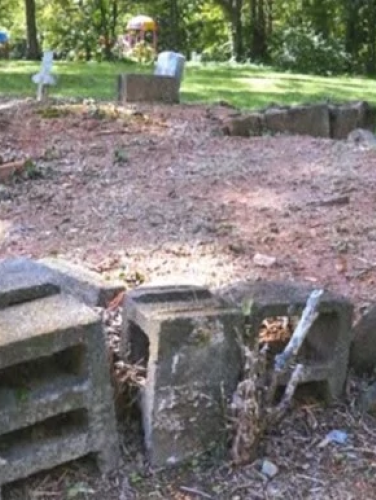
Biddleville Cemetery
(ca. 1873)
Biddleville Cemetery is one of Mecklenburg County’s oldest post-Emancipation African American cemeteries not affiliated with a church.
Five Points Neighborhood Park, 200 French Street, Charlotte 28216
Because of Jim Crow segregation, only African Americans are buried in Biddleville Cemetery. However, because it was established after the Civil War, Biddleville Cemetery is not a cemetery of the enslaved, but rather of free African Americans. It is one of the oldest post-Emancipation African American cemeteries in Mecklenburg County not affiliated with a church. Because of that lack of church affiliation, Biddleville Cemetery is the final resting place for people of various denominations, many of whom were originally from the surrounding rural areas of both Carolinas and moved to Charlotte after the abolition of slavery.
Property Quick Links
Post-Civil War segregation started as an informal practice across the South but became codified by the late 1800s in state legislation known as Jim Crow laws. North Carolina’s Jim Crow laws forced Black Charlotteans into a “separate but equal” daily existence apart from their White neighbors. Those laws mandated racial segregation in housing, public transportation, restaurants, stores, theaters, public restrooms, and even cemeteries. Segregation prompted African Americans in Charlotte and elsewhere to relocate, concentrating their communities within specific racially defined locations. Black Charlotteans initially clustered in the First, Second, and Third Wards of the center city before migrating to peripheral areas at the city limits that typically centered around African American institutions. Biddle Memorial Institute (now Johnson C. Smith University) was one of those institutions.
In 1867, the Committee of Freedmen of the Presbyterian Church USA started a school in Charlotte to train young Black men as teachers and preachers to work throughout the South. The gifts of Mrs. Mary D. Biddle of Philadelphia enabled the school to move to eight acres of land just north of the city donated by William R. Myers. In 1869, the school reopened on the new campus under the name Biddle Memorial Institute in honor of Mrs. Biddle's husband Major Henry J. Biddle, a casualty of the Civil War. A community of Black Charlotteans that grew up around the school’s campus became known as Biddleville. That community developed primarily due to the efforts of Dr. Stephen Mattoon (1815-1886), Biddle Institute's first president from 1870 to 1886. Mattoon purchased land adjacent to the campus and resold the property to the formerly enslaved on modest affordable terms for housing.
In November 1873, Mattoon sold approximately one acre of land to the Society of the Minute Men, believed to be a local Black civic organization. The property was to be used as a cemetery. Although burials are certain to have taken place in Biddleville Cemetery during the 1870s, the earliest known burial was that of John Springs in February 1886, the victim of an elevator accident at the Mecklenburg Iron Works. Many prominent Biddleville residents are buried within the cemetery, including several local ministers and veterans of the Spanish-American War and the First and Second World Wars. However, because there are relatively few markers designating graves, the specific burial locations for most of the cemetery’s interred are unknown. Burials in Biddleville Cemetery continued into the early 1980s.

